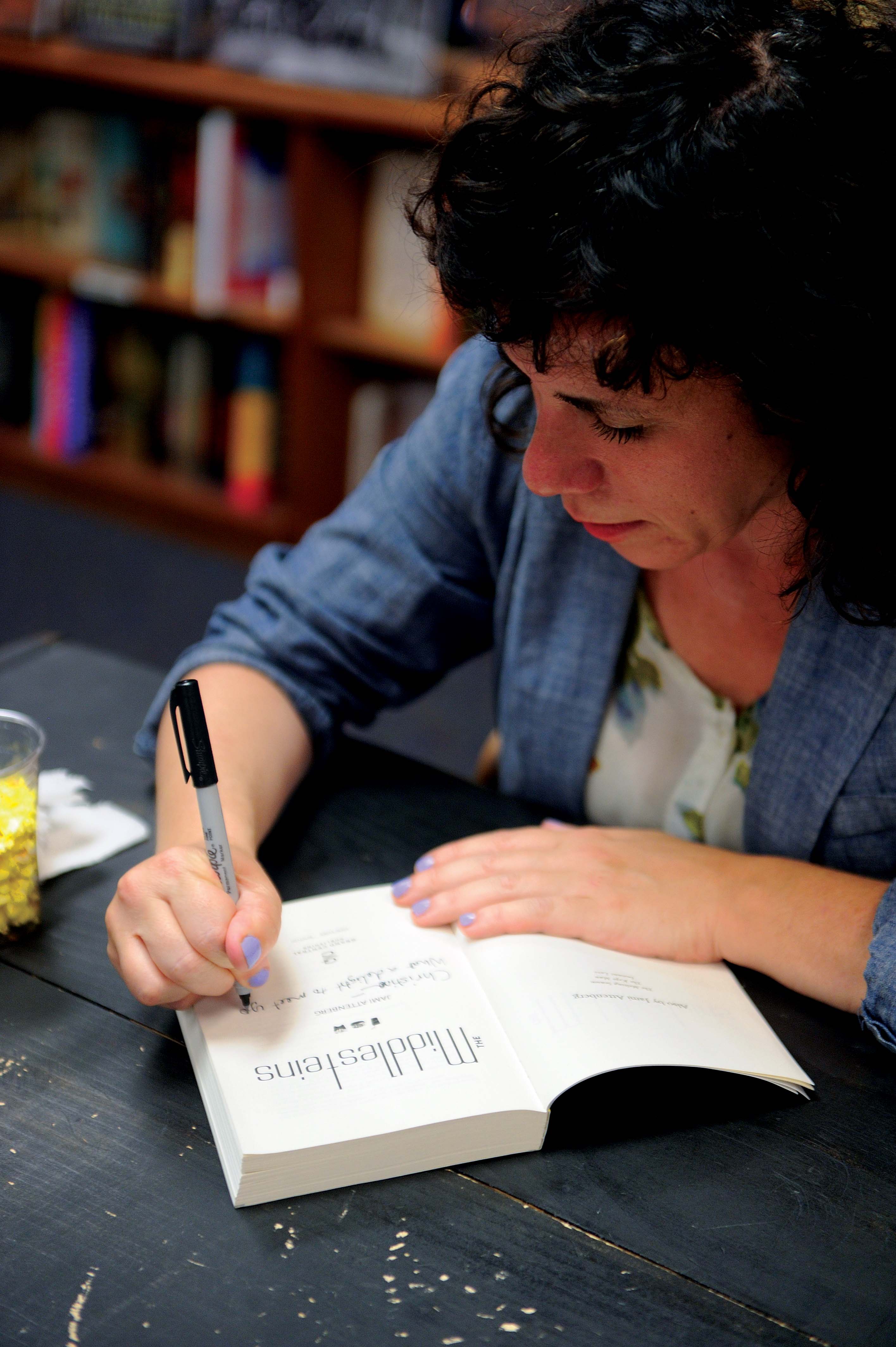In mid-July, after a whirlwind 18 hours in Washington, D.C., which included a reading at Politics and Prose bookshop and a nosh at Bistro Bis, Jami Attenberg ’93 tweets: “See you later book tour! I’m gonna write a new book now.”
Attenberg is a witty and prolific Twitterer, her subject matter ranging from Chihuahuas to travel in Lithuania to her obsession with the Netflix series Orange Is the New Black. But this tweet, regardless of its matter-of-fact breeziness, marks a shift in focus for the Brooklyn-based writer. For the past year, she’s been on the road promoting her critically acclaimed third novel, The Middlesteins. Now she can return to what she loves most: writing fiction.
Despite her eagerness to resume her writing, Attenberg is grateful for her readership and the way book tours foster conversation between author and reader. “When you’re writing a book you’re engaged in a conversation with the world that’s sort of one-sided in its conception,” she explains. “When you’re published, you begin to have a little more of a conversation through [public] readings. You get to see if people understood what you’re saying or if you’ve said things you didn’t know that you meant.”
The Middlesteins was somewhat of a breakthrough for Attenberg, who was dropped by her former publisher before Grand Central picked up the option on the book. “It felt like it was a step forward in my writing,” she says. “It’s the best thing I’ve ever written.”
Set in a suburban Chicago community similar to the one where Attenberg grew up, the novel plunges the reader into the world of the Middlesteins, a contemporary Jewish family struggling with, among other things, obesity, divorce, and the sweet and salty negotiations of grown-up love. It’s a tartly funny, yet sympathetic rendering, and Attenberg’s intimate descriptions of meals—from the compulsive desire for McDonald’s French fries to the aphrodisiac qualities of Chinese food—arouse all manners of hungers. The novel made the cover of The New York Times Sunday Book Review as well as the paper’s best-seller list. It also received starred reviews from Publisher’s Weekly, Booklist, and Kirkus Reviews, which included the novel in its Top Ten Books for Fall 2012.
Writing, Attenberg concedes, has always been “the thing that gave me joy.” She wrote her first story at the age of 4 or 5 and later was editor of her high school paper. “I was always immersed in the world of books,” she explains. “Writing was always something I felt good at and felt good doing. It’s like a second skin to me.”
When Attenberg entered Johns Hopkins in 1989 as a Writing Seminars major, her original focus was poetry. But a class with Tristan Davies encouraged her to take more fiction classes and changed her path. Another class, this time with Stephen Dixon, introduced her to experimental fiction and the benefit of a careful, thoughtful reader. “I’d never met anyone like him [Dixon] before—very lively, very funny, and cerebral,” recalls Attenberg. “I enjoyed reading his work at the time. He had interesting ideas, a really distinct voice.
“In one story I wrote, he suggested a different ending. It made me think that he was really paying attention.”
Attenberg’s new book will be a fictional rendering of the life of Mazie Phillips, a real-life theater ticket booth assistant, known from the early 1920s to the 1940s as the Queen of the Bowery for her outreach to the neighborhood’s down-on-their-luck denizens. During the writing process, Attenberg will take four to five months to draft the book, holding herself to a daily self-imposed regimen of 1,000 words a day. “I write really fast and come up with ideas really quickly,” she explains. “I do a lot of thinking before I even start a book, and after nearly a decade of focus on writing fiction, I have editors in my head—these inner editorial book voices that say, ‘This is working. This is funny. This is going too far.’”
Much to her delight, The Middlesteins’ success has allowed Attenberg to concentrate fully on writing after 10 years of supporting her fiction habit by supplemental work in advertising. Still, she is not one to rest on her laurels. “I think all novelists are really driven to making great art, writing great books,” she says.
“I’m proud that I’ve kept going,” Attenberg continues. “It’s a really rough ride. Being a writer is not a career that I would recommend to somebody who would like to make a lot of money, for example. But it’s the thing that I love most in the world, and I don’t know if I have any choice in the matter.”

